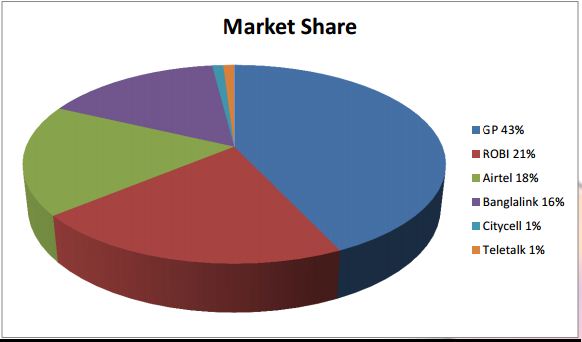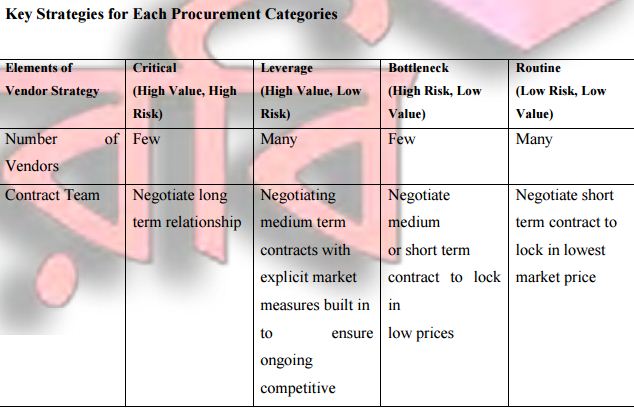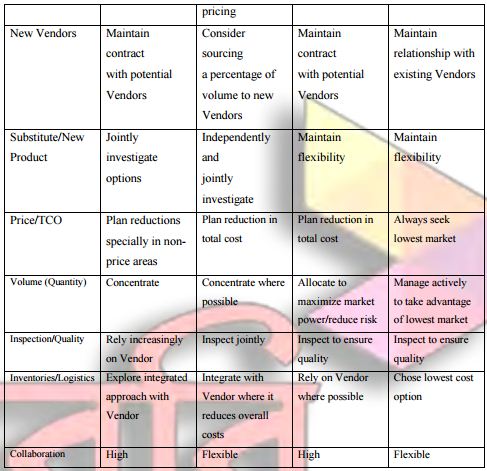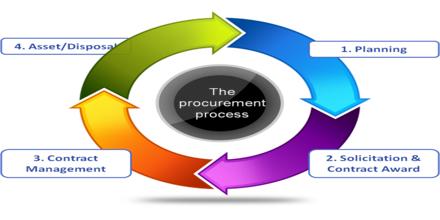Procurement process and vendor management
of Robi Axiata Limited
In this 21st century mobile networking is became a basic needs of our day to day lifestyle. Most of the people of our society are using mobile networking for communicating. The basic function of telecommunication is to connect people through voice transfer, text messages and via internet.
Apart from this basic function, telecommunication has already started introducing some diversified areas with the help of its mobile network. Mobile technology is presently providing various cheap solutions in people‟s daily life. The traditional thinking of connecting people through mobile phone is far behind in comparison with the present scenario. Information technology enables telecom companies to provide economic solutions with a very cheap and easily available access which was earlier costly and not accessible to some extent.
Today, telecommunication has become a day to day necessity of the people. The number of mobile phone user is increasing day by day in our country. It is a very attractive market for the mobile connection provider. Presently there are six companies in the market. Each of them is trying to maintain and increase their market share. Among them Robi Axiata Limited is one of the leading company in the sector. Many other companies of different market have contributed a lot behind the success of Robi. I have got the opportunity to work with Robi in the Market Operation Buying Department. This department does the procurement for the market operation of Robi.
History of Robi Axiata Limited:
Bangladesh is a developing country. Moreover, in this informational and technological era Bangladesh also go ahead with these changes of information and technology. One of the familiar information and technology is mobile networking. In Bangladesh there are many telecommunication companies in telecommunication industry. Robi Axiata Limited is one of them.
Robi Axiata Limited is a dynamic and leading countrywide GSM communication solution provider. It is a joint venture company between Axiata Group Berhad, Malaysia and NTT DOCOMO INC, Japan. Robi Axiata Limited, formerly known as Telekom Malaysia International (Bangladesh), commenced its operation in 1997 under the brand name Aktel among the pioneer GSM mobile telecommunications service providers in Bangladesh. Later, on 28th March, 2010 the company started its new journey with the brand name Robi. Robi is truly a people-oriented brand of Bangladesh. Robi, the people’s champion, is there for the people of Bangladesh, where they want and the way they want. Having the local tradition at its core Robi marches ahead with innovation and creativity. To ensure leading-edge technology, Robi has the international expertise of Axiata and NTT DOCOMO INC. It supports 2G voices, CAMEL Phase II & III and GPRS/EDGE service with high-speed Internet connectivity. Its GSM service is based on a robust network architecture and cutting edge technology such as Intelligent Network (IN), which provides peace-of-mind solutions in terms of voice clarity, extensive nationwide network coverage and multiple global partners for international roaming. It has the widest International Roaming coverage in Bangladesh connecting 550 operators across 205 countries. Its customer centric solution includes value added services (VAS), quality customer care, easy access call centers, digital network security and flexible tariff rates. With its strengths and competencies developed over the years, Robi aims to provide the best quality service experience in terms of coverage and connectivity to its customers all over Bangladesh. Together with its unique ability to develop local insights, Robi creates distinct services with local flavor to remain close to the hearts of its customer.
Market Share:

Revenue VS net Profit/Loss:
According to financial update 2014 Robi customer base reached to 25.3 million and by 13.2% to record a subscriber market share of 21.0% an increase of 1% relative to end of 2013. Revenue grew by 9.4% in FY 2014 amid fierce competition. Operating Profit/ EBITDA (Earnings before Interest Tax Depreciation and Amortization) recorded an 18.3% growth with a 2.9 percentage point (pp) improvement in EBITDA margin. Net Profit after Tax (PAT) grew by 20.4% through focused investments and excellence in cost management. Invested BDT 21.0 billion (63.7% increase) towards expansion of 3.5G footprint, 2G new coverage and enhancement quality of service. Contribution to national exchequer was BDT 21.7 billion representing 43.8% of Revenue.
Key Success Factor
Company‟s key success factors are their means to prosper in the market place. KSF includes product attributes, competencies, and market achievements with the greatest impact on future competitive succession the market.
Technology Related KSFs:
Technological Innovation: Robi is the 1st Bangle SMS Service Provider in the market. Recently Robi introduced 3.5 G internet for its customers.
Distribution Related KSFs
Strong network of dealers, wholesale retailers, like, Robi Customer Care Centers, Robi Touch Points etc.
Infrastructure and Network Related KSFs
Strong Infrastructure and Wide Network Coverage and Robi provide network coverage in 61 permitted districts of Bangladesh.
Marketing Related KSFs
Better Product Quality and Broad Product Line. E.g. prepaid, postpaid, mobile-to-mobile, International roaming. Faster and Efficient Customer Service e.g. 24 hours helps line, customer service centers, etc.
Financial KSFs
Strong Balance Sheet to be able to invest in infrastructure and network. Low cost provider to be able to cut price and match competitors
Value Chain
The company value chain consists of the value chain of its‟ own as well as the value chains of its Vendors and its distributions channel allies engaged in getting its products or services to its endusers.
The competitiveness in end users market requires that the company managers understand the entire value chain system for delivering a product or service to end users of the company‟s own value chain.
- Vendor Related Value Chains
- Vendors of SIM Cards
- Scratch Cards and Network Providers
Procurement Process and Vendor Management
Procurement Process:
Procurement is the acquisition of goods and/or services. It is favorable that the goods/services are appropriate and that they are procured at the best possible cost to meet the needs of the purchaser in terms of quality and quantity, time, and location. Corporations and public bodies often define processes intended to promote fair and open competition for their business while minimizing exposure to fraud and collusion.
Objectives
- To acquire goods and services of the best quality on the most favorable prices.
- To ensure the due delivery of goods and services.
- To cooperate and develop partnership relations with reliable Vendors only.
- To accrue maximum benefits for the Company (e.g., using discounts).
- To maintain high inventory turnover.
- To cooperate with all subdivisions of the Company participating in procurement process.
- To render assistance to subdivisions of the Company in making the right decision on purchases, their planning and organizations.
- To optimize procurement and general logistical expenses of the Company.
- To keep effective automated records of acquired goods and services and support other IT systems of the company.
- To develop and initiate the activity, to improve qualification of Procurement personnel.
- To contribute to achieving corporate targets and to keeping up to logistical strategy.
Scope of Procurement
Directing the buying activities, responsible for identifying sources of materials, selecting Vendors, arranging contracts, and managing relationships and provides analysis to increase levels of service at reduced costs. Periodical vendors‟ performance evaluation and disposal of scrap goods.
Main Principles
The roles of Procurement include, but are not limited to:
- Manage key procurement/contract management compliance
- Manage key Vendor performance
- Achieving sustainable savings based on Total Cost of Ownership (TCO)
- Identify opportunities, optimize spend and leverage Group scale where applicable
- Drive policy compliance (with active support of all Executive Management)
All Robi procurement related activities shall be conducted through Procurement unit. Group Procurement shall be consulted with regard to any key global purchase in relation to Axiata and its subsidiaries. Procurement committees shall be established at Robi to recommend any procurement to the relevant approving authority in accordance with the Procurement Committee‟s terms of reference.
All major purchases via Procurement function shall be supported by an approved business case as per LOA (Limit of Authority). Major purchases are defined as follows:
- Above a single and aggregate value exceeding Robi management‟s limits
- A key category purchase
- Strategic to the business or
- Requires approval of the board of directors
A representative from Group Procurement may be part of the Procurement Committee for Robi‟s major purchases that meet any of the above criteria mentioned as well as where it is felt necessary by group procurement. All other purchases shall be approved (unless exceptions have been pre-approved) in accordance with the LOA.
Group Procurement may be involved in the following stages of Robis‟ bid process, including but not limited to:
- Determining the mandatory requirements prior to bid document sign-off
- Technical and commercial evaluation
- When it is felt necessary by Group Procurement
All personnel in Robi must ensure that any procurement activities are carried out by the authorized procurement personnel. No procurement activities are to be carried out independently unless pre-authorized by the Supply Chain Management Department.
All Executives, SLT & eSLT members and managers are to ensure they work closely with the
Supply Chain Management Department to ensure they and each employee are aware of procurement requirements; and are to plan and maintain a rolling 12 months procurement plan of their projected requirement to support effective resource allocation and compliance with this procedure.
Procurement Phases
Pre-award Procedures
When a requirement is verified and confirmed, User will raise PR through SAP and attach all relevant documents (PR template including justification, Business Case, if required, scope of supply‟s etc.) for PR approval. Budgetary issues will be checked and confirmed with respective Business Partner. Concerned authority will verify the attached documents and release the PR as per LOA. Once PR is released, concern buyer will prepares and sign off the RFQ Strategy &Planning Document (as applicable) by both User and Buyer and follow the next procedure. SCM Department will ensure that all the Procurement schedule, compliance to this procedure and time schedules are maintained. Equal Information flow to all the potential Vendors need to be ensured by the responsible buyer during all the stages of all procurement processes.
Existence of Frame Contract/ Schedule of Rate (SoR) Contract
The User Department shall check if a frame contract exists in Robi or not. If there is a valid 31frame contract with Robi that covers the same or similar/ equal goods or service then a Purchase Order shall be issued to the actual Vendor according to chapter 4.5.3.1 Registration of Purchase. If a Frame Contract of another Axiata business unit is used, a local frame contract may be executed with the said Vendor or its legal local representative considering the business benefits and complying with Bangladesh laws.
Minor Purchase Process (Less than BDT 0.01 million)
For values defined in the first row in the table the User Department can directly purchase from a Vendor following the Minor purchase procedure. The purchase shall be confirmed by the appropriate authority as per LOA. Confirmed purchases shall be documented by a Purchase Order registered in the SAP system.
Respective Business Partner will quarterly review all Minor purchases and provide the report to SCM Department. If Business Partner as well as SCM Department finds Minor purchases are being used for the same kind of purchase more than once in a quarter, SCM Department will consider entering into frame contract where applicable. Respective Business Partner shall notify SCM Department with immediate effect if there is recurrence of similar purchases.
The user department is responsible for receiving and authorizing without undue delay the correct invoice and sends it to Finance Division for payment. Validation and authorization cannot beam by the same person.
Simplified Competitive Bidding Process (More than BDT 0.01 Million up to and including BDT 10 Million):
If no valid frame contract exists, and the requirement in question represents a purchase with a total cost between amount limits as defined in previous page then a simplified competitive bidding process shall be executed and documented by SCM Department. The process shall be completed as follows:
- Follow the “Simplified Competitive Bidding Procedure”
- Complete the simplified RFQ document as described in the document itself
- The completed simplified RFQ shall be sent to a minimum of three Bids candidates.
- Received bids shall be evaluated equally, and the Vendor(s) which offers an acceptable quality and delivery time combined with the lowest Total Cost of Ownership (TCO)/ Life Cycle Cost (LCC), shall be chosen.
- When a Vendor has been awarded a bid, a contract may signed consider the nature of goods & services and complexity of the purchase.
Regular Procurement Process (More than BDT 10 Million)
If no frame contract exists, and the requirement in question is a purchase with an estimated total cost above the amount limit as defined in previous chapter then SCM Department together with User Department shall establish a Cross Functional Team (CFT) for preparing the RFQ documents. The CFT shall be established prior to any contact with potential Bid Candidates.
The CFT shall consist of minimum two persons, with at least one person from SCM Department and one person from the User Department. The CFT shall involve resources from other department(s) considering the expertise as applicable. SCM Department shall decide the number of CFT participants.
SCM Department Head may delegate any individual procurement activity or all procurement activities within a specified field (e.g. Site Acquisition – Land lease and/or Purchase, Individual Consultant Hiring, Legal Consultancy etc.) to any User Department Head. Such delegation can be unlimited both in scope and in time or can be given with a specific limitation in scope and time. Such delegation shall at least contain a reference to the procurement activity delegated and any limits in the scope and time.
The delegation of one or more procurement activities does not imply any exception to the procurement process as described in this procedure. SCM Department Head or his/ her designee may audit, check compliance and make necessary changes accordingly to the delegated responsibilities as and when required.
Request for Information (RFI)
If required information is not available for writing scope or specification or for planning, budgeting, trial or any similar purpose, User Department will request SCM to issue an RFI. No technical and commercial information obtain from RFI shall be used in any procurement process.
No Purchase Order shall be issued based on an RFI.
Specification
User Department is responsible for specifying the identified and verified requirements in a written Performance Based Specification. If Performance-Based Specification is not possible, the alternative specification models to be used are, in the order of priority, the following:
- Performance based specification
- Standard specification
- Detailed specification
All requirement specifications shall be functional specifications.
Supplier Market Analysis
After or in parallel with specifying the service or goods to be purchased, the CFT shall perform a Vendor market analysis. The purpose of this analysis is to identify qualified Bid Candidates to secure a real competitive bidding process before issuing the Request for Quotation (RFQ). In cases where only one Bid Candidate alternative exists, a Vendor market analysis may not be required.
Use of Contract Management System
All relevant Contract documents, including all enclosures to the RFQ and a copy of the final Contract signed by the Vendor(s) and Robi shall be archived by the Contract Management Team. Request for Quotation to be issued
Robi shall always approach the Vendor market through a Request for Quotation to at least three Possible Vendors when performing a competitive bidding process. The comprehensive RFQ shall as a minimum always consist of
- Invitation letter to Bidder
- Instruction to Bidder (ITB)
- A Contract template containing (As applicable)
- Contract template with commercial provisions
- Specification
- Scope of Supply
- Robi Vendor conduct principles
- Vendor/ Employee Relationship Declaration Form:
If a relationship is declared, the CFT member in question may be replaced by another member from the respective department.
SCM Department Head shall approve any deviations from this procedure regarding the RFQ content and structure.
Award Procedures for Procurement Process
Evaluation of Received Bids:
All bids received within the time limit set in the Instruction to Bidder shall be evaluated by the CFT/ authorized technical and procurement personnel in an objective way. All bids shall be treated alike and the evaluation shall always be performed according to pre-defined technical and commercial evaluation criteria informed in the RFQ Strategy & Planning Document as well another documents (if RFQ Strategy & Planning Document is not applicable). A bid opening log shall be created in documentary form when bids are opened.
The technical and commercial evaluation of the bid shall be performed parallel or separately by different CFT members and the evaluation information shall only be disclosed to all the CFT members when making the final evaluation. If applicable, the TCO/ LCC/ Cost Management model, or similar, shall be used when evaluating the commercial offer.
Short Listing of Bidders
The Bidders shall be short-listed according to their bid‟s degree of compliance with the evaluation criteria fixed in the RFQ Strategy & Planning Document as well as other documents (if RFQ Strategy & Planning Document is not applicable).
A debriefing meeting may be conducted by SCM and User Department, if requested by the Bidders, who was not awarded.
Post Award Procedures
Registration of Purchase(s):
Authorization of Contracts and POs shall follow the Limit of Authority (LOA) of Robi. The Concern Management of Robi may delegate the authority for approving Contracts and Pos to abominated person. Purchases shall be registered as a Purchase Order in the SAP. All purchases shall have reference to the actual Contract and/ or the Purchase Order.
In cases where the Contract acts as a Purchase Order itself, no additional registration of the Purchase Order is necessary. When the ordered goods and/ or service are received, acknowledge of receipt shall be registered in SAP.
Storing Bid Documentation
All documentation from the bidding process shall be stored in the document management system in electronic and, if applicable, in physical form and according to Bangladesh laws.
Vendor Relationship Management (SRM)
SCM Department shall develop and maintain a documented structure for its Vendor relationship management activities that gives direction in how SCM classifies its Vendors and how each group of Vendors shall be managed.
Amendments and Renewals of Contracts
SCM Department is responsible for timely amendment to and renewal of any procurement related contract (which has been accomplished by SCM Department before) based on confirmation from User Department given in due time before contract expiration and shall make said amendment/renewal in due time to avoid delays in Purchase Ordering.
Contract Suspension or Termination
Any Procurement related contract (which has been accomplished by SCM Department before) suspension or termination shall be performed by SCM Department by written and numbered documents in co-operation with the Vendor and User Department. Termination of an existing contract before the end of the contract period shall be performed as per the contract provisions.
Contract Closeout
Any Procurement related contract (which has been accomplished by SCM Department before) with a value in excess of BDT 1 Million shall be subject to formal closeout. Closeout process will certify assessment of Vendor‟s work performance, HSSE & completion of all deliverables, defect rectification, if any, and that all Claims and payments have been settled. The process will also record actual savings made. Closeout process should be run generally at the time of contract expiry.
Vendor Management:
Introduction
Business in a dynamic environment is getting more complex day by day. In telecommunication business, it is even more important to manage different strategic and critical operational challenges. In managing today‟s telecommunication business, therefore, it is important to invest necessary effort and resources in identifying potential suitable Vendors and developing &maintaining relationships with them, who will individually and collectively meet the needs of the business considering different strategic and key organizational factors.
Objective
The objective of this guideline is to provide strategic direction with respect to the management of Vendors, relationship with Vendors and associated risk management to ensure that the Vendor activities are conducted in an ethical and effective manner complying with regulatory requirements and applicable policies, procedures of Robi Axiata Limited (Robi).
Scope
This document is applicable for Supply Chain Management department or any other department/unit directly responsible for procurement. The document covers the following areas:
- Vendor Pool and Vendor Performance Evaluation
- Vendor Management and Contract
Framework for Vendor Strategy
Vendor strategy framework focuses on the high level guideline on Vendor selection, Vendor positioning & maintenance and maintaining appropriate Vendor relationship. The principle idea is that Vendors will support the business of Robi to manage different extent of operational criticality in a timely, quality and cost effective manner and at the same time, they will also expect certain terms and commitment from Robi in line with the Guiding Principles which create a win-win situation. In particular, Robi Vendor Strategy Framework has been designed to focus on the following areas:
- Key Priorities: In terms of pricing, quality, delivery and Vendor responsiveness.
- Stages of Vendor Relationship: Pre-bidding, bidding and post-bidding Vendor management.
- Supply Positioning Model: Outline appropriate strategy to select the right mix of Vendors and manage them in an appropriate manner by performing „risk and business impact analysis.
- Risk Analysis: Perform risk rating and manage risks;
- Business Impact Analysis: Analyze spending according to procurement category.
- Vendor Pool Creation and Vendor Performance Evaluation: Create a Vendor pool to facilitate smooth business operations and regular Vendor performance evaluation.
Key Priorities
The following key priorities will be considered during formulation of Vendor strategy:
Quality: All products and/or services are expected to be fit for purpose and well maintained, and must fully meet Robi technical and performance specifications and requirements;
- Pricing: Robi seeks fair and reasonable prices.
- Delivery: Ensure delivery of right quantity at the right time and at the right place;
- Vendor Responsiveness: Ensure effective and efficient response from Vendor. Stages of Vendor Relationship
In order to enter into a relationship with Vendor and subsequently maintain a positive relationship, it is important to recognize the following stages of Vendor relationship. These three stages of Vendor relationship are as follows:
Pre-Bidding Stage
Determine Procurement contracting strategy and finalize technical specifications, Vendor market analysis, perform pre-qualifications of invited Vendors, fixing bid evaluation criteria and weightage, bidding instructions, and the contract document.
Bidding Stage
Float bid, clarify bid, receive bid, bid evaluation, negotiation, awarding, contract signing (where applicable)
Post- Bidding Vendor Management Stage
Execute PO/ contract, monitor performance, evaluate Vendor and close out contract. Analysis Supply Positioning
Supply Positioning Matrix
Supply Positioning Model divides four segments for all type of product and/ or service based on their risk/impact on business and level of spend for each category. This model helps to take decision, control and overall strategy on the particular segment. The four segments are as follows:
- Critical items: high expenditure and high risk
- Bottleneck items: low expenditure and high risk
- Leverage items: high expenditure and low risk, and
- Routine items: low expenditure and low risk.
This evaluation and categorization will be done on a periodic basis preferably twice a year. On the basis of the above categorization, different Vendor management strategies will be developed and practiced which are appropriate for each category of goods and/or services of procurement and which will support sustainable and profitable company operation.


Table: Key strategies of Procurement categories
While adopting the appropriate strategy for four categories of procurement, the following issues need to be considered: Strategic issues, concerned with the overall size, nature and development of the Vendor pool as a whole and in the long term. Vendor should be regarded as valuable business resources to be managed with appropriate care, recognizing both the company‟s responsibility to the Vendor and the contribution which a good Vendor can make to company‟s profitability. Robi generally consolidates its spending with the minimum number of Vendors that allows effective competition and provides the best combination of onsite quality of equipment, goods, service and costs. The intent is to achieve economies of scale and focus performance management with a limited number of Vendors.
Tactical issues, concerned with selecting specific Vendor(s) to meet the company‟s foreseen requirements for particular goods or services in the short or medium term. Many factors should be considered in building and maintaining an appropriate range of suitable Vendors of a particular commodity or service. In particular, three key questions should be addressed.
- What are the characteristics required in a quality Vendor?
- How many Vendors are needed?
- What type of relationship should be maintained with each Vendor?
There is no single answer to these questions. More may be required from Vendors of each of the equipment or of a complex technical service than from a Vendor of office consumables or simple services. For some goods and services or business areas, it will be useful to have very wide range of sources available. For others, a small numbers of Vendors or even a single Vendor will be appropriate.
Vendor Pool and Vendor Performance Evaluation
Vendor Pool
Concern department (designated procurement individual/ team) will determine rational size of Vendors‟ pool against each category of items against set criteria and justification as applicable. Required number of Vendors will be short listed for bidding from the pool based on requirement and justification as applicable. Short listing should be made in such a manner so that all the Vendors in the Vendor pool get equal opportunity time to time. The determination and evaluation of Vendor pool is an on-going process. However Vendor pool review and update will take place at least once in a year.
Information of Vendor Pool
Sound information and documentation is an essential prerequisite for proper management of a company‟s Vendor pool. In order to manage Vendor pool effectively, Robi needs to gather and maintain two types of information about its Vendors as follows:
Overviews information about the company‟s Vendor pool as follows:
- The number of Vendors registered
- The number of Vendors registered in each category of items
- Analysis by volume of business conducted
Detailed information about individual Vendors in accordance with Vendor Information
Form and/ or Expression of Interest web portal.
Vendor Management and Contract
Contract Review
Contracts should be reviewed by the designated procurement individual/ team at periodic intervals based on the level of the Vendor but no less than once a year to ensure the original terms and conditions are aligned with current practices. Contracts should be amended as needed, with approval from Legal to ensure alignment.
Renewal of Existing Contracts
The contract owner (user) and designated procurement individual/ team are responsible for monitoring the expiration date of Vendor contracts and working with areas of expertise as appropriate to determine renewal strategy. If a Vendor relationship is to continue, the contract must be renewed or extended prior to the contract expiration date.
The contract owner should pursue the appropriate contract renewal strategy with designated procurement individual/ team and appropriate areas of expertise well in advance of the contract renewal date. Sufficient time must be allowed for Vendor selection, contract negotiation and integration.
Ongoing Vendor Contract monitoring
Designated procurement individual/ team will monitor respective contracts as to Vendor‟s activities and performance, engaging areas of expertise as appropriate. Ongoing monitoring efforts should reflect the degree of risk associated with the particular procurement category complexity involved and performance of the Vendor etc.
Recommendations:
However, from the above discussion of procurement process and vendor management of Robi Axiata limited I came up with some recommendations which may help the company to enhance productivity and minimize the error.
Formation of Committees: There should be a formed committee for a fixed duration of time for all kind of technology procurements. This committee will finalize the technical specification before RFT/RFQ is floated.
Technical Evaluation: Technical evaluation committee will evaluate the received RFT/RFQ based on the predetermined evaluation criteria/template. There should have standard template for similar products to evaluate technical specification. Effective pre bid meeting will reduce the possibility of wrong technical proposal.
Obtain PA/ Board Approval: This phase should be removed and if not possible on control point ground, Procurement approval should be obtained through System.
Material/ Service master data update: As per current process, material master data is updated before raising PR. For single line item PRs, procurement unit will update the material master data before converting the PR into PO.
Goods Receipt: GR Data should be uploaded in SAP on real time.
Pre-negotiation Meeting: A pre-negotiation meeting should be done for identifying the objectives of negotiation.
Obtain Procurement Approval: Procurement approval should be obtained through System.
Commercial Evaluation: In event procurement SCM should make a commercial evaluation based on the cost break-up provided by the vendors. The output of technical and commercial evaluation is considered as CS. Based on the evaluation report some vendors are selected for next step.
Selecting Vendors: Vendor has to be selected from the enlisted vendor pool.
Selection of vendor: In case of General and Admin Procurement I am recommending to eliminating this step. Instead Robi will have a strong vendor pool and there will be a vendor appraisal process, may be quarterly/half-yearly. Based on the appraisal vendor will be ranked. SCM will select vendor and float RFQ based on the latest vendor ranking.
Conclusion:
Finally I would like to say that, Robi delivers the finest class GSM service to its customers in Bangladesh. The operational goal is being achieved through the regular purchase of sensitive telecommunication equipment, accessories and services. In Robi, the procurement, contract management and logistical, warehouse & inventory procedures are handled by the Supply Chain Management Department. To procure any products and/services, the Procurement unit of Robi Supply Chain Management department has to carry out a systematic procedure consisting of various steps. During this process, the personnel involved face various challenges and problems.
The challenges could be general or specifically related to different stages of the procurement process. The key general challenges identified are: No definite ownership of the procurement system, lack of end user requirement planning, inadequate specification of requirements, tradeoff between compliance and simplification, etc. Key challenges specific to different stages are: Lack of knowledge and skill of user department personnel about purchase requisition and procurement process, lack of coordination between CFT members, incomplete and untimely technical evaluation, high bargaining power of specific vendors, disagreements with vendors about terms and conditions of the contract, lengthy process of selecting vendors and awarding contracts, critical mistakes in L/C, delays in shipment and in clearing of goods from ports, disagreements with PSI and Customs about HS codes, payment issues, inadequate infrastructure at the ports, etc. Key recommendations to internal and external stakeholders of Supply Chain Management are: creating a service-oriented mentality in FP, making SCM the owner of the PR process, developing a Standard Operating Procedure for SCM, flattening the organizational structure of Robi, involving SCM in category management and requirement forecasting, giving more importance to vendors‟ suggestions, formulating favorable government policies and regulations for the telecommunication sector, reduction of taxes on SIM cards, etc. Hence, a collective effort of all stakeholders is required to make the Foreign Procurement System of Robi reaching the international telecom standards.



![Internship Report on Customer Service of IFIC Bank [ Part-4 ]](https://assignmentpoint.com/wp-content/uploads/2013/04/ific-bank-limited-200x100.jpg)












